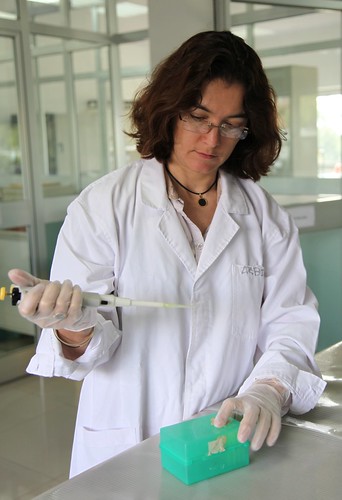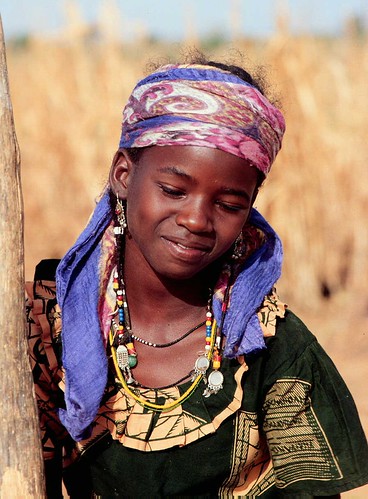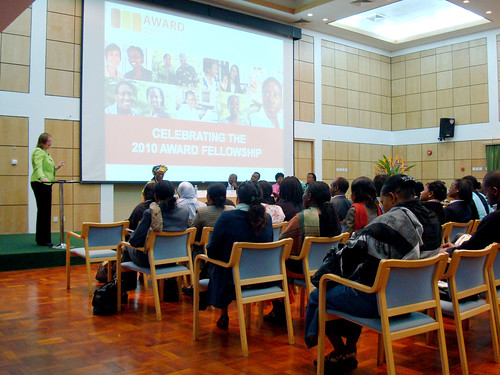
Alexandra Jorge, the genebank manager at the Addis Ababa, Ethiopia, campus of the International Livestock Research Institute (ILRI), is one of four Africa-based scientists elected, this past December, to join the Society of Biology, a leading professional body that represents individuals committed to biology from academia, industry, education and research.
With over 80,000 members, the Society of Biology promotes advances in biological science across the world and awards fellowships to individuals who make ‘contribution to the advancement of biological sciences, and who have over five years experience in positions of senior responsibility’. The society is a particular supporter of work done by scientists in developing countries.
Jorge, a plant physiologist, works under the People, Livestock and Environment theme at ILRI, where she is managing the study, documentation and conservation of forage seeds in a forage genebank located at ILRI’s campus in Addis Ababa. The genebank, together with Ethiopian field sites in Soddo, Ziway and Debre Zeit, contains over 20,000 types of tropical grasses, legumes and tree forages, which are routinely tested to ensure they remain healthy and viable for use in farms.
‘To be invited to become a Fellow of the Society of Biology is a great honour to any scientist and I am very proud of this achievement,’ says Jorge, ‘I thank the African Women in Agricultural Research and Development (AWARD) program for nominating me for this fellowship and I look forward to working with the large network of scientists in the Society.’Other Fellows elected to the Society of Biology in December 2010 are Stella Asuming-Brempong, Waceke Wanjohi and Sheila Okoth. These four women are also fellows of AWARD, a Gender and Diversity Program of the Consultative Group on International Agricultural Research.
For African women scientists, such recognition is significant.
‘It can be a struggle for scientists from the developing world to network successfully and maximize the benefits of international collaboration due to geographical and financial reasons,’ said Vicki Wilde, director of the Gender and Diversity Program and AWARD, ‘These scientist’s voices—and the unheard voices of millions of farmers, particularly women, in sub-Saharan Africa—will now be heard and their work taken seriously.’
—-
For more information see the following article: http://www.societyofbiology.org/newsandevents/news/view/210
Read about ILRI’s work in managing forage diversity on https://www.ilri.org/ForageDiversity and https://cgspace.cgiar.org/handle/10568/228
For more on crop genebanks and forages visit: http://cropgenebank.sgrp.cgiar.org/ and http://www.tropicalforages.info/


